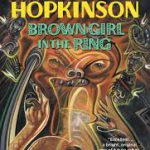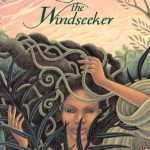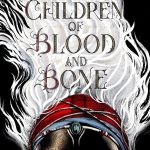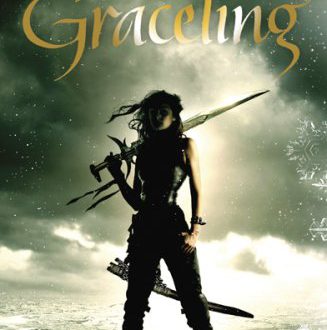A Black Girl’s Thoughts on #OwnVoices
I am Sarah Raughley and I am a writer of color. African Canadian, to be exact.
So, I love seeing #OwnVoices. I love it because like others have mentioned, it encourages authors from marginalized groups to write books starring protagonists who are marginalized in the same way they are. This movement certainly leads one to recall earlier conversations about diversity in the infant stages of the big YA boom; these conversations often seemed to be around trying to push non-marginalized authors to write characters in ways that they weren’t, ignoring that there were plenty of authors who weren’t ‘normative’ in some way that were ready, willing, and already writing these stories. Often, you’d find many authors from non-marginalized groups being lauded and applauded for writing diverse characters regardless of whether these representations were done sensitively or responsibly. What #OwnVoices does is it signals to publishers that we’re here: us non-white, non-normative authors are here writing the stories we want to tell, stories that reflect different kinds of realities than the ones the mainstream is used to. It encourages publishers to publish us.
And for a time, all was good. Books were being published that offered real diversity. This is what we wanted. It’s what I wanted and still want. I mean, what could go wrong?
But the more I thought about it, the more I realized that even movements designed to champion marginalized authors can sometimes become twisted into the very thing used to restrain them.
To explain myself, I’ll have to go back to my first book. Now, this book was never published, but the character was a Nigerian girl, like me. I enthusiastically allowed this Nigerian American (well, I’m Canadian) to borrow my voice and my vision of the world and happily wrote a fantasy story that reflected everything I loved growing up, particularly anime, RPGs – fans of The Effigies series already know what that means. I didn’t think too hard about it. This was a story that came from my heart and that represented who I was, what I liked, how I grew up. It was the perfect manifestation of my geeky heart.
And yet, when I tried to publish this book, I was told by publishers that the Nigerian character was not authentic. She didn’t sound authentically Nigerian. And the story needed to be more bent around an authentic Nigerian-ness. I guess what these publishers meant is that they wanted something more strongly and visibly Afrocentric. And, of course, I wouldn’t have minded that. I love (and teach) Nnedi Okrafor’s books, like Zahrah the Windseeker. I love Nalo Hopkinson’s Brown Girl in the Ring and like the rest of the internet, I am so painfully excited for Tomi Adeyemi’s Children of Blood and Bone, which is even in development by Fox to be made into a movie!
But what if that’s not what I want to write? At least, not now? At least, not always?
It’s something that stresses me out. Because I feel that there’s so much that marginalized authors have to go through. #OwnVoices should be a liberating movement, and in many ways it is. But in some ways, the ways in which a section of the industry (publishers, readers, critics, other authors etc) and their expectations have taken up the issue of diversity may only be placing pressure on certain kinds of authors to write certain kinds of stories, telling those authors that unless their stories fit a certain kind of mold, their stories are less-than, or worse, they themselves are sell outs. The rejection of my Nigerian MC and her magical adventure on the basis of not fitting a very mainstream (in the publishing world) conception of what kinds of stories African girls can inhabit and how, only reinforces that there are boundaries and limitations placed upon me as a writer. If I am a Nigerian writer writing fantasy, to be ‘authentic’ (real, celebrated etc.), my work must delve into my ethnic heritage in ways that shape, structure and permeate the characters, plot, world building of the story. As a black author, I can’t write a Twilight or a Cinder. Even having written the Effigies series, I’ve been told by some critics that if a black author includes non-white characters in her story, she must make their non-whiteness the point of the characters, and allow their non-whiteness to guide every aspect of the narrative.
But what I think the point of celebrating diverse stories from diverse authors is that more marginalized authors should be allowed to tell the stories they wish to tell based on what they love and who they are. Or at least, that should be the point. Restricting marginalized authors by telling them, “yes, we want to publish your stories, but these are the only type of stories we want from you” and shaming them when they don’t live up to those Diversity Guidelines flies in the face of what the project is supposed to be about and reinforces further the division between, for example, white authors and non-white authors in terms of the kind of hoops they must jump through before their work is considered worth something. Ironically, it repeats the same divisive tactics colonists have been doing for centuries: it creates standards for normality and then punishes those who don’t fit into it.
Again, I’m not speaking of the idea of marginalized representation; it’s sorely needed. I’m more exploring and perhaps exposing the often restrictive ways in which Diversity may have been taken up by some in mainstream publishing. I have a lot of ideas in my head. Some are Afrocentric and some aren’t so much. Some star black characters, mixed characters, African characters – and some may not. I have no aims, really, to restrict myself in the kinds of worlds I want to imagine. And yet, while earlier on in my writing career, I was terrified as to what might happen if I don’t write a white main character in a white story, now the fear seems to have swung to the other side of the scale and that hurts just as much. That kind of fear doesn’t come from nowhere. It comes from the publishing world implicitly drawing the lines in the sand, a perfect square all around a marginalized author that traps them and warns them not to dare step outside that box, or else.
#OwnVoices can only be own voices if it allows authors to own their voice. So let them.




3 Comments
Karen Lin
Excellent post. Made me realize how important it is to stay true to oneself and one’s stories. The diversity issue is like eggs on top of all foods and avocado toast….trendy. But in the end, the diversity of voices will be a natural result if we accept that there are many ways to tell stories about many different types of people, and that those stories that focus on our different-ness will have their place just as those that focus on what we all have in common–which is where I choose to write, despite my characters often being Asian.
Pingback:
jyvurentropy
Wow. I’ve been really frustrated with the Own Voices movement as a white writer. I didn’t realize the movement was frustrating to POC writers too. That’s awful that you can’t just write any kind of Nigerian character you want. You shouldn’t be pigeon-holed 🙁